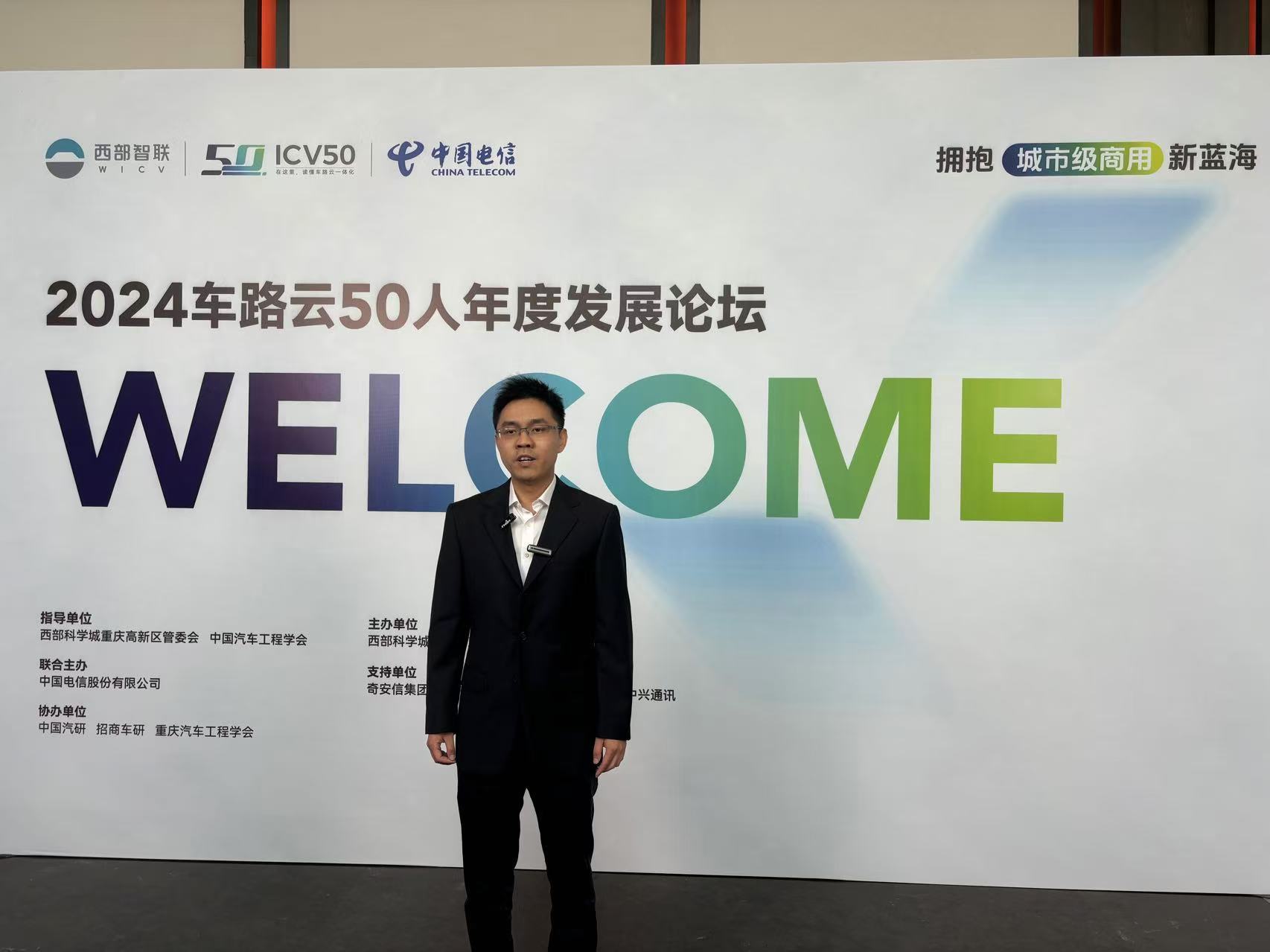 Bridging News
Bridging News
Chongqing Advances Vehicle-Road-Cloud Integration Through Automotive, Tech Expertise
Chongqing - Chongqing is leading China's initiative to accelerate the widespread adoption and commercialization of intelligent connected vehicles (ICVs) using its innovative vehicle-road-cloud integration model.
At the 2024 Annual Development Forum on Vehicle-Road-Cloud Integration for 50 People on October 10, Chang Xueyang, Deputy General Manager of Western China Internet of Vehicles (Chongqing) Co., Ltd., emphasized the crucial role of Chongqing's strong automotive industry and technological expertise in driving the sustainable development of this integration.

Chang Xueyang, Deputy General Manager of the Western China Internet of Vehicles (Chongqing) Co., Ltd., at the 2024 Annual Development Forum on Vehicle-Road-Cloud Integration for 50 People on October 10. (Photo/Chen Zhan)
"Home to major automotive manufacturers like Seres and Changan, Chongqing provides a solid industrial foundation for our initiatives," he noted.
Chang also detailed that the Chongqing vehicle-road-cloud demonstration area spans 700 kilometers of road infrastructure and supports over 6,000 ICVs. This extensive network serves as an excellent testbed for research and development in this cutting-edge area.
With support from the Western China Science City Innovation Center of Intelligent and Connected Vehicles (WICV), Chongqing has established a standardized framework that enables sustainable operations at low costs while achieving extensive system coverage.

The intelligent connected vehicle demonstration application in Chongqing. (Photo/WICV)
Chang said Chongqing is enhancing its vehicle intelligence by exploring cloud technology to boost intelligent vehicle capabilities. The aim is to progress from single-vehicle assisted driving to connected intelligent driving, ultimately achieving fully autonomous driving that minimizes human intervention and exceeds human driving skills.
In line with this, Chang revealed that these advanced features will be rolled out to consumers in the future through subscription-based models, allowing for personalized services that cater to different driving needs and scenarios.
He also emphasized the company's dedication to exploring collaborative co-construction and joint operations models. Partnering with key ecosystem stakeholders aims to enhance existing business applications and create new services. This approach will direct data and investments toward strengthening infrastructure, improving data integration, and expanding service capabilities.
Furthermore, Chang noted that Chongqing's ongoing digital transformation is crucial in advancing vehicle-road-cloud integration. "We aim to fully leverage existing resources and incorporate public data from government sources to accelerate the commercialization of vehicle-road-cloud systems further," he said.
Ultimately, the goal is to drive cross-application collaboration and establish Chongqing as a model city for the sustainable development of vehicle-road-cloud integration.
(Ma Manlin, as an intern, also contributed to this report.)
 Related Stories
Related Stories